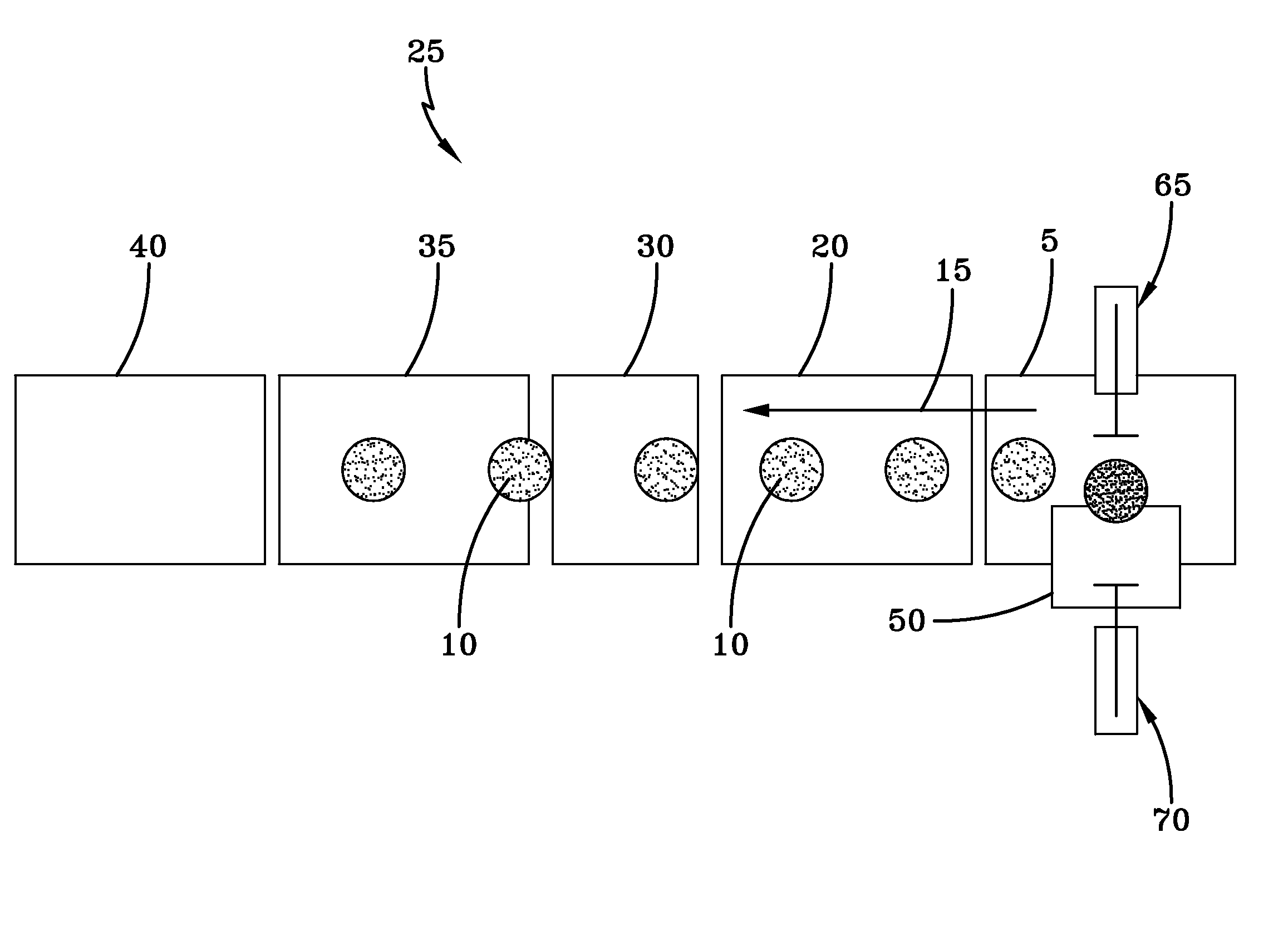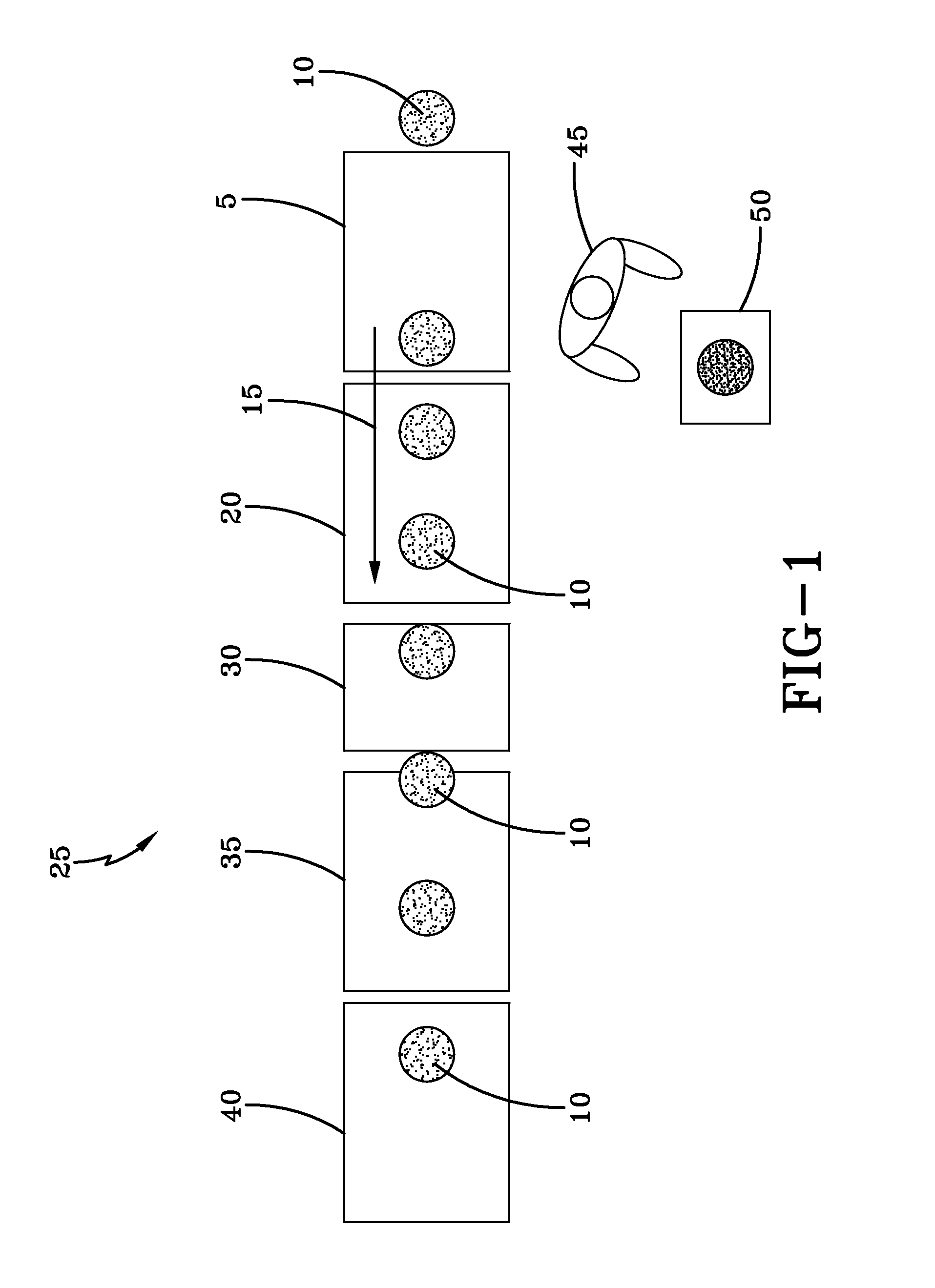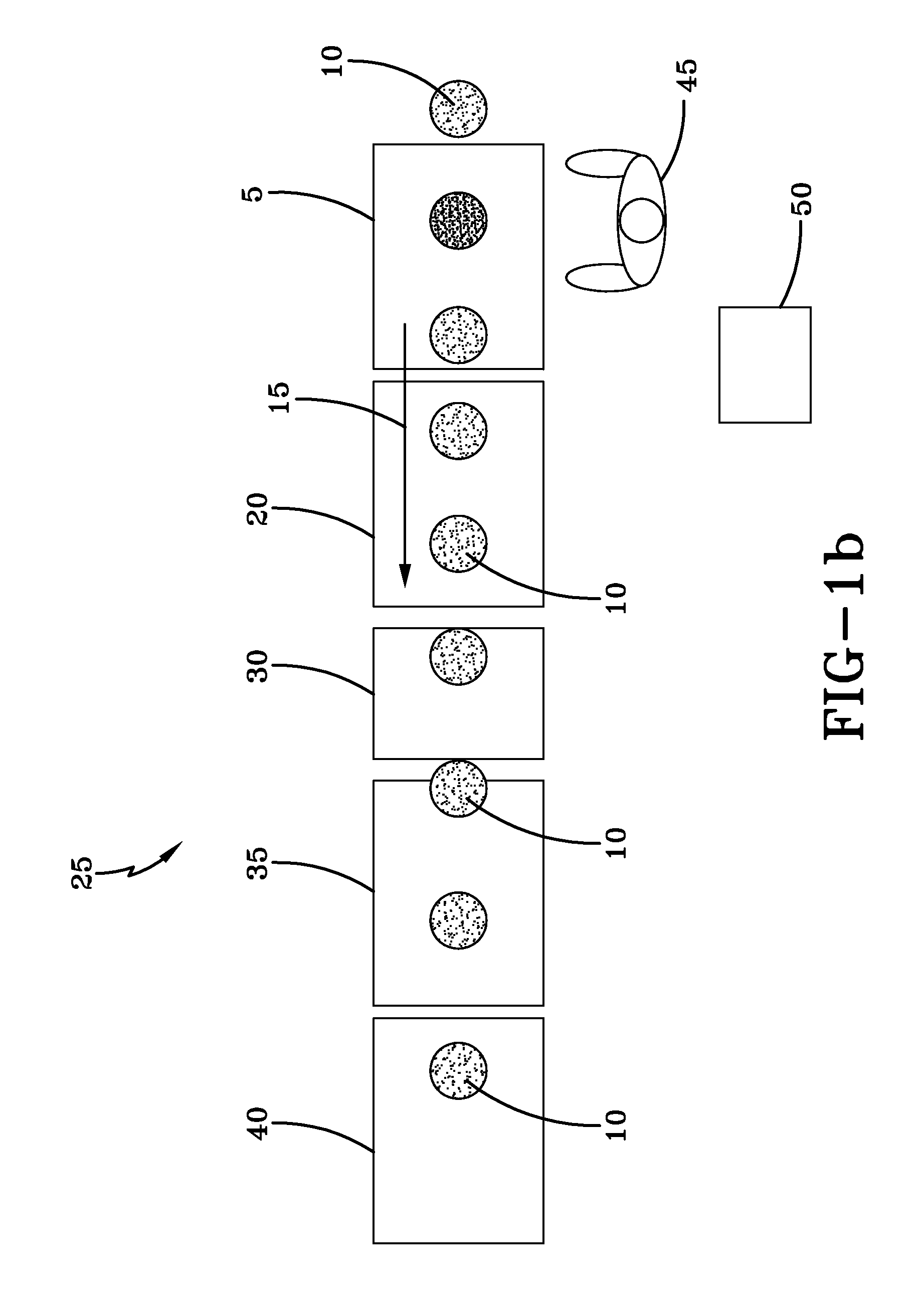Checkweigher performance validation
a technology of performance validation and checkweigher, which is applied in the direction of weighing apparatus details, instruments, measurement devices, etc., can solve the problems of erroneous weight readings, light and unstable objects traveling at a high speed, and not likely to be handled in the same manner, so as to reduce or eliminate the need for an operator
- Summary
- Abstract
- Description
- Claims
- Application Information
AI Technical Summary
Benefits of technology
Problems solved by technology
Method used
Image
Examples
Embodiment Construction
)
[0038]One exemplary embodiment of a checkweigher validation method of the present invention is represented in FIGS. 1-1b. As shown, a supply conveyor 5 transports objects to be weighed 10 in the direction indicated by arrow 15. The objects 10 are moved onto an in-feed conveyor section 20 of a checkweigher 25, whereafter they are passed over a scale portion 30 of the checkweigher. After passing over the scale portion 30 of the checkweigher 25, the objects 10 are transported away from the checkweigher by an out-feed conveyor section 35 thereof. As would be well familiar to one of skill in the art, the out-feed conveyor section is generally associated with an exit conveyor 40 that will transport the objects 10 to a downstream location.
[0039]As depicted in FIG. 1, according to this particular method, an operator 45 removes a random one of the objects 10 from some location upstream of the checkweigher 25 for use in a checkweigher validation operation. This random object then becomes a v...
PUM
| Property | Measurement | Unit |
|---|---|---|
| weight | aaaaa | aaaaa |
| gravity | aaaaa | aaaaa |
| speed | aaaaa | aaaaa |
Abstract
Description
Claims
Application Information
 Login to View More
Login to View More - R&D
- Intellectual Property
- Life Sciences
- Materials
- Tech Scout
- Unparalleled Data Quality
- Higher Quality Content
- 60% Fewer Hallucinations
Browse by: Latest US Patents, China's latest patents, Technical Efficacy Thesaurus, Application Domain, Technology Topic, Popular Technical Reports.
© 2025 PatSnap. All rights reserved.Legal|Privacy policy|Modern Slavery Act Transparency Statement|Sitemap|About US| Contact US: help@patsnap.com



